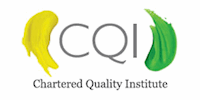
ISO 22000 Lead Auditor - Face to Face and Virtual classes available
CQI and IRCA certified course in the leading ISO Food Safety Standard
IQMS LEARNING LTD
Summary
- Exam(s) / assessment(s) is included in price
- Tutor is available to students
Add to basket or enquire
Dates
Overview
Aimed at all organisations in the food and feed industries, regardless of size or sector ISO 22000:2018 translates Food Safety Management into a continuously improving process. It takes a precautionary approach to food safety by helping to identify, prevent and reduce foodborne hazards in the food and feed chains.
The 2018 version brings clarity of understanding and offers a dynamic control of food safety hazards combining the following generally recognised key elements: interactive communication, systems management, Prerequisite Programmes (PRPs) and the principles of Hazard Analysis and Critical Control Points (HACCP).
This intensive, challenging and highly interactive CQI and IRCA Certified training program is for those people who require an in-depth understanding of the knowledge and skills required to perform first, second and third-party audits of Food Safety Management Systems (FSMS) against ISO 22000.
Many of the skills acquired on this course can be applied to auditing other Food Safety Management Systems.
Certification
ISO 22000: Food Safety Management Systems Professional
Description
Prior Knowledge
Those attending this course are expected to have prior knowledge of the following:
- Knowledge of the principles of food safety management including pre-requisite programs and HACCP
- The Plan, Do, Check, Act (PDCA) cycle
- The relationship between food safety management and the provision of safe food
- Awareness of common examples of relevant national and local FSMS legislation (in the food sector and country relevant to the delegate)
- Knowledge of the requirements of ISO 22000 and the commonly used food safety management terms and definitions.
Course content
- PDCA cycle and its use within an FSMS
- Terms and definition used in ISO 22000 pre-requisite standards
- Maintaining and retaining documented information
- The relationship between ISO 22000 & ISO 22002 series of pre-requisite standards
- 1st, 2nd and 3rd party audits
- Benefits of third party accredited certification
- The audit processes
- Auditor responsibilities
- Planning and conducting an audit
- Auditing Food Safety Management System requirements
- Generating audit findings
- Reporting and following up the audit
- Discuss the content and relationship of FSSC with ISO 22000
- Discuss the broadened pre-requisites of ISO 22000 and the additional requirements to meet GFSI recognised certification
What are the benefits
This course is designed not only to help people perform food safety audits, but also to develop delegates’ wider understanding of food safety management systems design and implementation. It will help delegates understand how HACCP can be embedded into the Food Safety Management System of an organisation.
Successful completion of the course and the achievement of the 70% pass mark will satisfy the formal training requirements for those wishing to register as an Auditor, Lead Auditor or Principal Auditor with CQI and IRCA Certified training under the food safety auditor scheme.
Who is this course for?
This course satisfies the training requirements for those who wish to register as a food safety system lead auditor with the CQI and IRCA Certified training under the food safety auditor scheme
Food safety professionals with a responsibility to design, implement and manage a Food Safety Management System that meets the requirements of ISO 22000
Food safety auditors who have been looking to enhance their auditing knowledge and skills or looking to achieve formal recognition for the skills and knowledge that they possess.
Auditors, from any organisation in the food chain, who need to lead audits and audit teams, both in their own organisation and in others, such as suppliers, where there is a requirement to audit Food Safety Management Systems against ISO 22000
Questions and answers
Reviews
Currently there are no reviews for this course. Be the first to leave a review.
Legal information
This course is advertised on reed.co.uk by the Course Provider, whose terms and conditions apply. Purchases are made directly from the Course Provider, and as such, content and materials are supplied by the Course Provider directly. Reed is acting as agent and not reseller in relation to this course. Reed's only responsibility is to facilitate your payment for the course. It is your responsibility to review and agree to the Course Provider's terms and conditions and satisfy yourself as to the suitability of the course you intend to purchase. Reed will not have any responsibility for the content of the course and/or associated materials.



